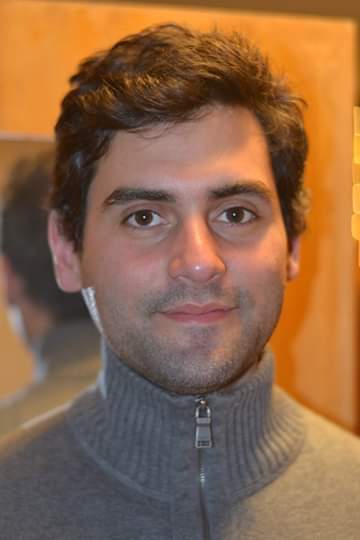Continue reading Porcine Futures 1: Re-Negotiating “Wilderness” in More Than Human Worlds
New acquisitions – September 2018
Committee’s Composition 2017-2018
Statutory Members
- Pavel Baran, Vice President in charge of Research Area III. Humanities and Social Sciences of AV ČR
- Lenka Rovná, Vice-Rector for European Affairs of UK
- Clara Royer, director of CEFRES
UK Representatives
- Paul Bauer, Ph.D. (Faculty of Social Sciences)
- Prof. JUDr. Jan Dvořák, CSc. (Faculty of Law)
- doc. PhDr. Jiří Hnilica, Ph.D. (Faculty of Education)
- Prof. PhDr. Luďa Klusáková, CSc. (Faculty of Arts)
- doc. Mgr. Josef Fulka, Ph.D. (Faculty of Humanities)
- Prof. Ivana Noble, Ph.D. (Protestant Theological Faculty)
AV ČR Representatives
- Mgr. Radka Dudová, Ph.D. (Institute of Sociology)
- Mgr. Kateřina Čapková, Ph.D. (Institute for Contemporary History)
- PhDr. Jan Zouplna, Ph.D. (Oriental Institute)
- Mag. Phil Dr. Michael Wögerbauer (Institute of Czech Literature)
- PhDr. Taťána Petrasová, CSc. (Institute of Art History)
- JUDr. Jan Malíř, Ph.D. (Institute of State and Law).
Raluca Muresan: Research & CV
Culture, Urban Society, and Representation of Territories. The Architecture of Public Theaters in the Eastern Lands of the Habsburg Monarchy (1770-1812)
Research Area 1 – Displacements, “Dépaysements” and Discrepancies: People, Knowledge and Practices
Contact: raluca.muresan@cefres.cz (from 1st September 2018)
My research seeks to understand the mechanisms behind the rise of public theater buildings in various towns in the Eastern lands of the Habsburg Monarchy between 1770 and 1812. It therefore looks into their architectural specificities and into their impact on the representation of the scales of urbanity of these towns. I use the geographical term “Eastern” that refers to the countries to the East of the Holy Roman Germanic Empire border: the Hungarian Kingdom, including the lands of Saint Stephen, and the Kingdom of Galicia and Lodomeria. Continue reading Raluca Muresan: Research & CV
Ekaterina Zheltova: Research & CV
National belonging, transnational localities and ideologies of language: Discursive practices at the Greek-Albanian borderlands
Research Area 3 – Objects, Traces, Mapping: Everyday Experience of Spaces
Contact: ekaterina.zheltova@cefres.cz (from 1st September 2018)
In my PhD project I explore how people living in the Albanian-Greek borderland region imagine and narrate their lives on the border, their relations with the nation-state(s), and their linguistic experience in this contested space.
The border region of the Albanian-Greek frontier is one of the vivid examples of a space existing in a dichotomy of controversial national narratives, different languages spoken sometimes by the closest neighbors, long-existing conflicts, often economic or political but usually interpreted in ethnic terms, that coexist with the “mixed” marriages, friendships and businesses. Continue reading Ekaterina Zheltova: Research & CV
Felipe Kaiser Fernandes: Research & CV
Rise of a Merchant Nation: An Ethnography of Vietnamese Bazaar Economy in Central Europe
Research Area 1 – Displacements, “Dépaysements” and Discrepancies: People, Knowledge and Practice
Contact: felipe.fernandes@cefres.cz

As a third-year PhD student in Anthropology at Ehess and a Phd fellow at Cefres, I conduct a participant observation of Sapa marketplace, situated in the suburbs of Prague. My aim is to analyze traders’ ways of thinking, working and living in this market in an attempt to characterize its role and its importance to the Vietnamese migration in Central Eastern Europe. Therefore, my thesis studies the pathways of specific Vietnamese traders who came from North Vietnam in the 60s,70s and 80s, the rise of the merchant networks and the bazaar economy nowadays in Eurasia. In this sense, my research highlights the capacity of the bazaar economy (Geertz, 1979) to federate, considering several levels: countries, cities and urban territories. Continue reading Felipe Kaiser Fernandes: Research & CV


